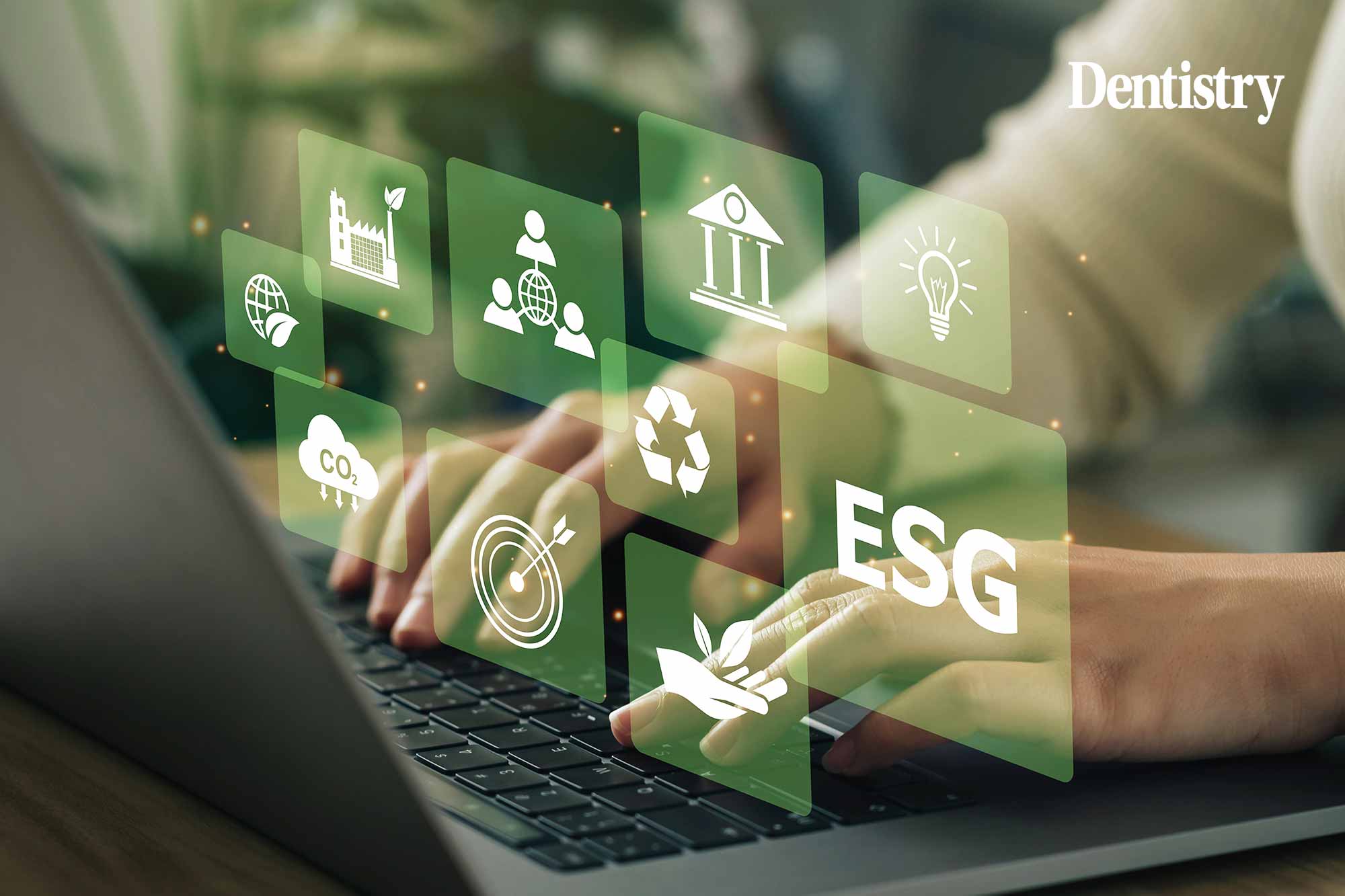
Paul Graham considers sustainability and ESG in UK dentistry, and how it can impact practice values.
In recent years, the concept of sustainability and environmental, social, and governance (ESG) has gained significant momentum across various industries.
From manufacturing to finance, organisations are recognising the need to prioritise sustainable practices and responsible business conduct. The UK dental sector is no exception.
As society becomes more conscious of its environmental footprint and social responsibilities, dentistry is undergoing a transformation towards greater sustainability and ESG impact.
In this article, Paul Graham, head of dental at Christie & Co, explores the key aspects of sustainability and ESG in UK dentistry, and highlights the impact that this can have on practice values.
What can practices do to make a difference?
The dental industry generates a significant amount of waste, including plastics, packaging, and hazardous materials.
To address this, many practices implement robust waste management and recycling systems, segregating different types of waste, recycling materials wherever possible, and disposing of hazardous waste responsibly.
Some are also exploring innovative solutions, such as dental amalgam separators, to prevent the release of mercury into the environment.
An increasing number of practices are adopting initiatives such as reducing water and energy consumption, implementing digital record-keeping systems, and adopting green building practices.
In addition, sustainable procurement practices ensure the use of eco-friendly dental materials and supplies, such as recyclable or compostable packaging and low-waste disposables.
Advancements in dental technology can also play a crucial role in enhancing sustainability and ESG impact in the sector. Digital dentistry, including the use of 3D printing, intraoral scanners, and computer-aided design and manufacturing (CAD/CAM) systems, reduces material waste and energy consumption.
The shift towards paperless practices and electronic communication not only streamlines operations but also reduces paper waste.
As part of their ESG policies, many businesses also promote diversity and inclusion in the workplace, providing fair and equal treatment to employees, and supporting local communities through charitable initiatives.
How is the sector recognising sustainable businesses?
Recognising the importance of ‘being green’, professional bodies such as the British Dental Association (BDA) are starting to seriously evaluate and endorse practices that prioritise these principles – working towards establishing sustainability and ESG standards for dental businesses.
Achieving these certifications demonstrates a practice’s commitment to responsible and ethical practices, giving patients confidence in the care they receive.
How realistic is sustainability in dentistry?
Earlier in the year, I asked Mark Topley, founder of ResponsibleDentistry.com and the Great Boss Academy, about his thoughts on how realistic it is to expect practices to pursue ESG programmes. He said: ‘It’s about getting people to see ESG and CSR (corporate social responsibility) as priorities amid everything else that’s going on and getting them to understand the benefits.
‘No one expects big changes to be made tomorrow. But it’s certainly time to lay the foundations and plan for the future if you haven’t already so that you and everyone around you can reap the benefits.’
To add to that, in our video interview marking B Corp month back in March, Harry Gill, founder of Envisage Dental, said: ‘Our industry is not the easiest to be sustainable and environmentally friendly, but I think it’s a journey and it starts with education. It’s easy to just give up straight away and say: “We can’t be sustainable because we’re a dental clinic and we use lots of PPE and single-use products.”
‘But I think there is a journey and there is a route that I see over the next decade as suppliers start educating practices, and as groups like Envisage really start shouting about this to show it’s not impossible to become sustainable.
‘At the very least, everyone has to start somewhere, and if 15,000 practices across the country all decided to do one small thing it will make an impact.’
What impact does sustainability have on practice values?
Of course, a multiple of EBITDA (earnings before interest, taxes, depreciation, and amortisation) will remain a major contributor towards value, but buyers also prioritise the clinical reputation, condition and location of a practice.
I personally believe it would be narrow minded not to think sustainability and ESG impact will become key differentiators as well.
To speak with Paul Graham about your green business credentials, email [email protected] or call 07739 876 621.


